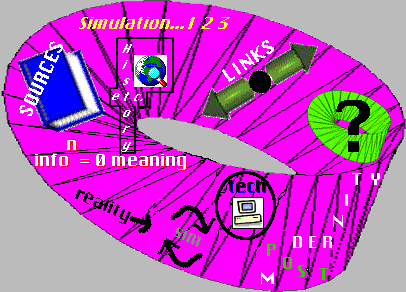
These are three historical periods. We are currently somewhere in between the nostalgic stage and the irreferential era. According to Baudrillard, we are nostalgic for the fascist epoch (for instance, Nazi Germany or Mussolini's Italy). We are nostalgic for fascism, not for its racial stereotypes and scapegoating, but for its intensity and power. Political power is defunct, yet we still believe strongly in it. So the possibility for fascist uprising is very real now.
Although this sounds like a very bleak situation, the irreferential period is even more upsetting. At least with nostalgia, we have historical references, which are real. The problem as Baudrillard sees it is that we are careening into an era without references.
The force that prevents us from engaging in real war is deterrence, or control. One of the key characteristics of the postmodern world is that everything can be predicted, known, and mapped out. Baudrillard notes that our control is increasing faster than our actual power.


